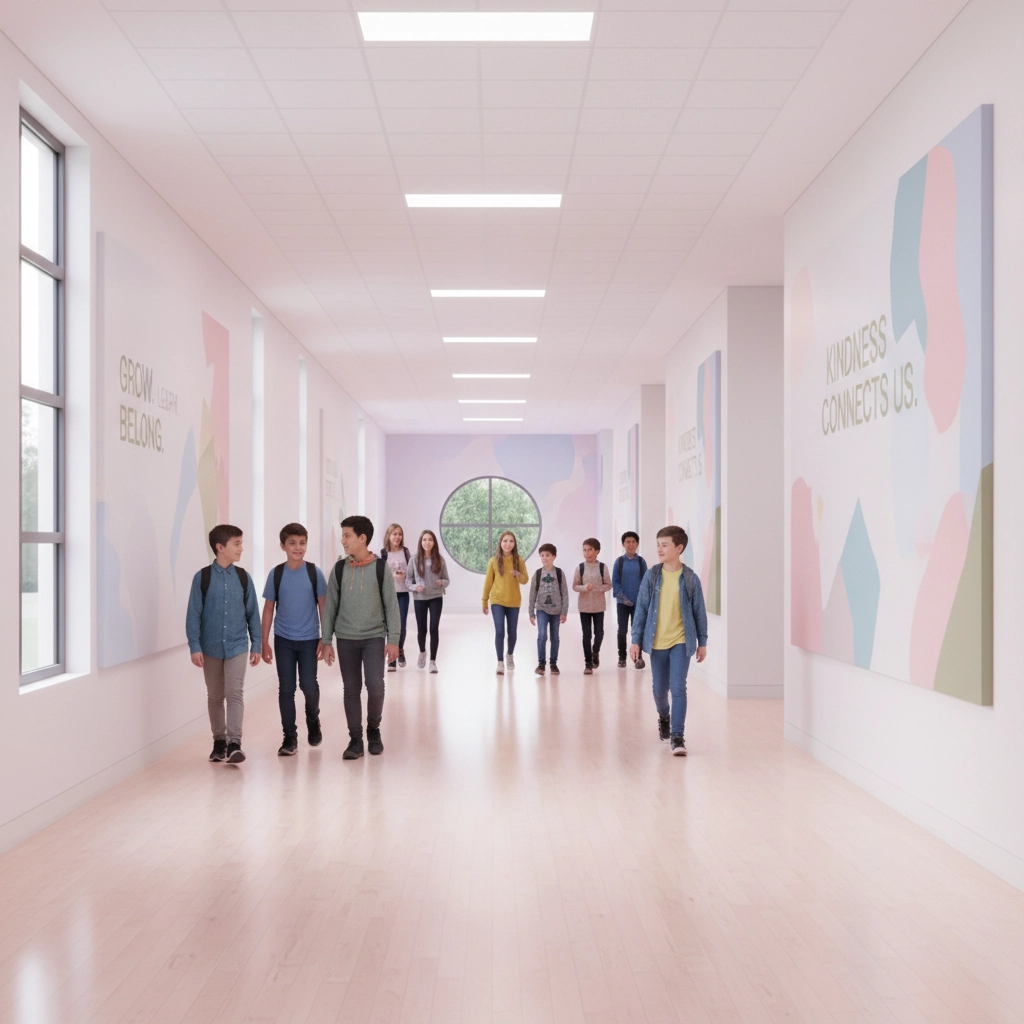Should Your Teen Get Mental Health Screenings at School? Here's What Every Chicagoland Parent Needs to Know
- clairestew
- Sep 23, 2025
- 5 min read
Updated: Sep 24, 2025
As a Chicagoland parent, you're about to witness something historic happening in our schools. Illinois has become the first state in the nation to require universal mental health screenings for students, including teenagers. Starting in the 2027-28 school year, your teen will have access to annual mental health screenings right at school: and we're here to help you understand exactly what this means for your family.
Governor JB Pritzker signed Senate Bill 1560 into law this past summer, creating a groundbreaking approach to supporting our young people's mental wellness. This isn't just another policy change: it's a recognition that mental health deserves the same systematic attention we give to vision tests and hearing screenings.
What This New Law Actually Requires
The legislation mandates that all Illinois public school districts offer mental health screenings to students in grades 3 through 12 at least once per year. For your teenager, this means students in grades 9-12 will be eligible for these annual screenings starting when they return to school in fall 2027.
Here's what's particularly reassuring: the Illinois State Board of Education must provide all the resource materials, model policies, and guidance to schools by September 2026. This gives districts a full year to prepare, train staff, and develop the systems needed to support our teens effectively.
The screenings are designed to be brief, age-appropriate assessments that help identify students who might benefit from additional mental health support. Think of them as wellness check-ins: similar to how we monitor physical health, but focusing on emotional and psychological well-being.

Your Rights as a Parent: You're Still in Control
We know that some parents may feel concerned about schools conducting mental health screenings. The good news is that your parental rights remain fully protected. You have the complete authority to opt your teenager out of these screenings if you prefer to handle mental health concerns privately within your family.
The law specifically includes this opt-out provision because lawmakers understood that families have different approaches to mental health care. Some parents may already have established relationships with mental health professionals, while others might have cultural or personal reasons for preferring private care.
What's particularly thoughtful about this approach is that there are no penalties for opting out. Your teenager won't face any consequences, and you won't need to explain your decision to anyone. The choice remains entirely yours.
The Real Benefits for Your Teenager
State education officials have been clear about why this matters so much for our young people. As State Superintendent Tony Sanders explained, schools too often only recognize student distress "when it becomes a crisis, when they begin failing classes, when they begin withdrawing from peers or experiencing harm."
Mental health issues are among the leading causes of hospitalization for children and teenagers. By identifying concerns early, we can intervene when support is most effective: before problems escalate into crisis situations.
Governor Pritzker emphasized that these screenings "provide early identification and intervention so those who are struggling get the help that they need as soon as possible" while also working to "improve academic and social outcomes."

How School Mental Health Screenings Actually Work
If you're wondering what these screenings look like in practice, they're typically brief questionnaires or conversations that assess various aspects of mental wellness. They might explore areas like:
How students are feeling about school and friendships
Whether they're experiencing persistent sadness or anxiety
How they're managing stress and daily challenges
Their overall sense of well-being and hope for the future
The screenings are conducted by trained school personnel and are designed to be non-invasive and age-appropriate. They're not diagnostic tools: instead, they're designed to identify students who might benefit from talking with a school counselor or connecting with additional resources.
Schools that have already implemented similar programs, like Evanston School District 65 here in our area, have found that proactive screening effectively identifies student needs and provides pathways to ongoing support.
Preparing Your Family for This Change
As we approach the 2027-28 school year, there are several ways you can prepare your family for this new resource:
Start conversations now. Even though implementation is still a couple of years away, beginning open discussions about mental health with your teenager helps normalize these topics. Let them know that caring for mental health is just as important as caring for physical health.
Learn about your school's approach. Each district will develop its own policies and procedures within the state guidelines. Stay connected with your school's communications to understand exactly how they'll implement the screening program.
Consider your family's comfort level. Take time to think about whether these screenings align with your family's approach to mental health care. There's no wrong choice: only what works best for your teenager and your family situation.

Connecting to Broader Support Systems
One of the most valuable aspects of this initiative is how it connects to Illinois's BEACON Portal: a centralized resource that provides families with information about available behavioral health services for children and adolescents. This means that if screenings do identify areas of concern, you'll have clear pathways to additional resources and support.
The screening program isn't designed to replace your family's existing mental health care: it's meant to complement and enhance the support network around your teenager. Whether your family is already working with mental health professionals or you're just beginning to explore these resources, the school screenings can provide valuable information.
The Cost Factor: No Financial Burden
Perhaps one of the most important details for Chicagoland families is that these screenings come at absolutely no cost to you or your school district. The state provides public schools with free access to screening tools and associated technology, ensuring that financial considerations never become a barrier to your teenager's mental health support.
This universal access means that all students, regardless of family income or background, have equal opportunities for mental health support identification. It removes the economic barriers that too often prevent families from accessing mental health resources.
Moving Forward Together
This historic legislation represents our community's commitment to supporting every young person's mental wellness. As we prepare for implementation, remember that this is just one tool in a comprehensive approach to teen mental health: it works alongside family support, community resources, and professional mental health services.
The Mental Health Association of Greater Chicago is here to support families throughout this transition. We're committed to helping you understand these changes and connecting you with resources that best serve your teenager's needs.
Whether you choose to participate in school screenings or prefer to handle mental health support privately, what matters most is that our community is taking mental health seriously. We're moving from a reactive approach: waiting for crises: to a preventive one that prioritizes early support and intervention.
For questions about mental health resources in the Chicagoland area or to learn more about supporting your teenager's mental wellness, we're here to help. Visit us at mhagcusa.org or reach out through our contact page. Together, we can ensure that every young person in our community has the support they need to thrive.

Comments